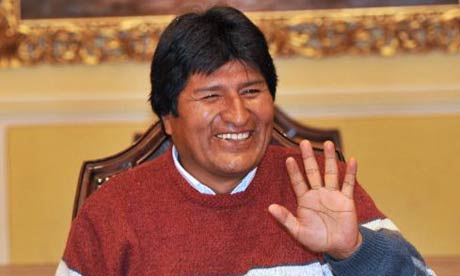The following Declaration was prepared by a committee elected for this purpose at the Paris Ecosocialist Conference of 2007 (Ian Angus, Joel Kovel, Michael Löwy), with the help of Danielle Follett. It will be distributed at the World Social Forum in Belem, Brazil, in January 2009.
To add your name to the list of signatories who
support the analysis and political perspectives set forth in this
statement, email your name and country of residence to
ecosocialism@gmail.com, or visit http://www.ecosocialistnetwork.org/.
The Belem Ecosocialist Declaration
“The world is suffering from a fever due to climate change,and the disease is the capitalist development model.”
— Evo Morales, president of Bolivia, September 2007






